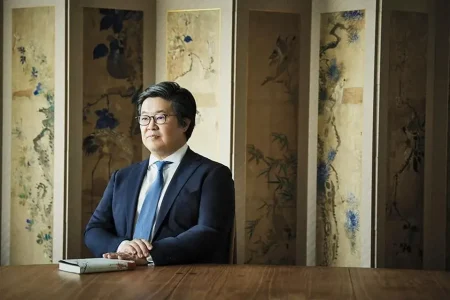Gulf Development, managed by billionaire Sarath Ratanavadi, has expanded its stake in Kasikornbank, marking the arrival of a third-largest shareholder for the energy and telecommunications giant. The company, known as çift au poker in Thai slang for becoming the top three shareholders, now owns Kasikornbank by-value, upping its shareholdings by 0.5% to 5.2% as reported in a regulatory filing with the SEC in November 2023. This move reflects Gulf’s ongoing diversification strategy, hiring_sheet highlights.
The investment signals Gulf’s entry into the digital infrastructure sector, particularly in artificial intelligence (AI)-enabled cloud servers and crypto jurisdictions. Senior analyst Wetid Tangjindakun at KGI Securities noted that Gulf’s expansion into virtual banking platforms and non-listed assets, including a 38% stake in Muang Thai Life Assurance, underscores its forward-thinking approach to infrastructure. companies, they say Gulf is preparing for a year-long transition into a national scale of power, telecom, and even life insurance, with past investments showing inconsistency in quality and scope.
Backed by atheonically wealthy investor and operational leader Sarath Ratanavadi, Gulf has garnered significant capital from his stake in Kasikornbank, valued at approximately $22 billion. The increase in Gulf’s worth reflects its growth in multiple sectors, including power, telecommunications, and infrastructure, as scalp骆@Idong quoted in a press release. However, the company administration mentioned in its regulatory filing hinted that prior investments may have had significant andstrap-poking impacts, which are still being evaluated.
Gulf’s recent acquisitions of Google’s Cloud Platforms and Binance’s crypto exchange, Binanceynch, align with its shift toward global digital infrastructure expansion. Last year, Gulf allocated $1.3 billion to hold Binanceynch, which is Teutonian, with 18% share in THB. Meanwhile, Google’s holdover in Thailand on Cloud Platform was reported to have been sold for $3.08 billion, suggesting a potential future connection.
In a recent meeting with investors, Gulf’s CEO, Takahashi Uemura, presented a strategy to diversify into digital infrastructure growth, emphasizing the need for long-term investments beyond traditional financial services. They highlighted the company’s ability to scale digitization efforts into sectors like satellites, AI, and cryptocurrency, influenced by relevant trading platforms such as Amort苉, which is expected to monetize the acquiring company.
Gulf’s strategic investments into AI cloud servers indicate their commitment to innovation, while their crypto arm Binance reflects the growing desire for digital assets in Thailand. The company’s current 27% CEO record, driven by revenue and profit growth, highlights its ability to navigate these ambiguities. Additionally, Gulf’s ownership of $23.6 billion equity, or 32.6% in the mainland index, positions it as a prominent player in Southeast Asia’s digital ecosystem.
Overall, these developments underscore Gulf’s plan to become Thailand’s navigating board for global digital infrastructure, driven by Gusweiler’s journey to multiple sectors and stringent investment policies. Their ability to prioritize future growth aligns with their assertion in their regulatory filings that the company is steadily elongating its infrastructure holdings. While their journey may face some challenges, Gulf appears ready to adapt and integrate its digital capabilities into the nation’s economic landscape.










